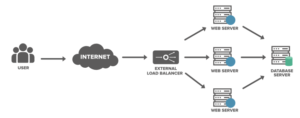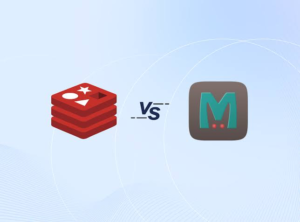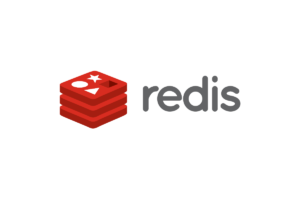
What is MongoDB?
MongoDB is a popular open-source NoSQL database that uses a document-oriented data model. It stores data in a flexible, JSON-like format called BSON, which allows for dynamic and nested data structures. It becomes more well-suited for handling unstructured or semi-structured data. MongoDB is designed for scalability and is used for applications from small-scale to large-scale projects, high-performance systems, etc. It includes the automatic distribution of data across various clusters, support for geospatial data, and flexible querying through a rich query language.
Advantages of MongoDB
MongoDB has a variety of advantages which makes it a great choice for different use cases. Here are some advantages listed below:
- Storage: MongoDB uses a document-oriented model, where data is stored as a flexible JSON-like document referred to as Collections. This flexibility allows the representation of complex relationships and evolving data structures. MongoDB supports a range of CRUD operations and enables the creation, retrieval, updating, and deletion of documents.
- High Availability: High availability is achieved through replica sets, ensuring data redundancy and automatic failover in case of server disruptions. Sharding, a horizontal scaling technique, equips MongoDB to handle large datasets and high write volumes by distributing data across multiple servers based on chosen shard keys.
- Complex Data Types: MongoDB excels in handling diverse data types, including geospatial and text-based information. Its geospatial supports location-based applications, while integrated full-text search empowers efficient textual queries within documents. Multi-document transactions guarantee data integrity across complex interactions, maintaining consistency.
- Security Mechanism: MongoDB supports authentication, authorization, and data encryption to secure sensitive information. It has a large community and library to support integration with multiple programming languages and frameworks. It serves as a high-performance solution for applications that require flexible data management and scalable architecture.
- CRUD Operations: MongoDB supports a powerful query language for data retrieval. It supports filtering, sorting, operators and expressions, increasing efficiency and precision. Indexes can be created on fields to enhance query performance, with the primary index automatically generated on the _id field.
Disadvantages of MongoDB
As MongoDB has a variety of advantages, it also has disadvantages that need to be regarded:
- Schema Design Challenges: MongoDB does not support the enforcement of fixed schema and challenges in maintaining data integrity and consistency. Careful schema design and validation are needed to avoid data quality issues.
- Memory Usage: MongoDB’s memory usage can be high, especially when used with indexes. It may lead to an increase in hardware requirements and costs.
- Lack of Joins: Unlike relational databases, MongoDB does not support traditional SQL joins. When need to apply complex relations between collections, multiple queries are needed.
- Complexity of Indexes: As indexes help grow query speed, managing and maintaining indexes of big collections in MongoDB decreases the speed of the query.
- Memory-Centric: MongoDB relies on available memory, which increases challenges for applications running in memory-constrained environments.
Conclusion
In conclusion, MongoDB represents a dynamic and versatile NoSQL database system that introduces a fresh approach to data management, distinct from traditional Relational Database Management Systems (RDBMS). Its document-oriented model, characterized by JSON-like documents stored in collections, brings flexibility and adaptability. This flexibility, however, comes with concerns around schema design and data integrity, as MongoDB lacks the rigid structure implemented by RDBMS.




[…] MongoDB is a popular open-source NoSQL database that uses a document-oriented data model. It stores data in a flexible, JSON-like format called BSON, which allows for dynamic and nested data structures. It becomes more well-suited for handling unstructured or semi-structured data. […]